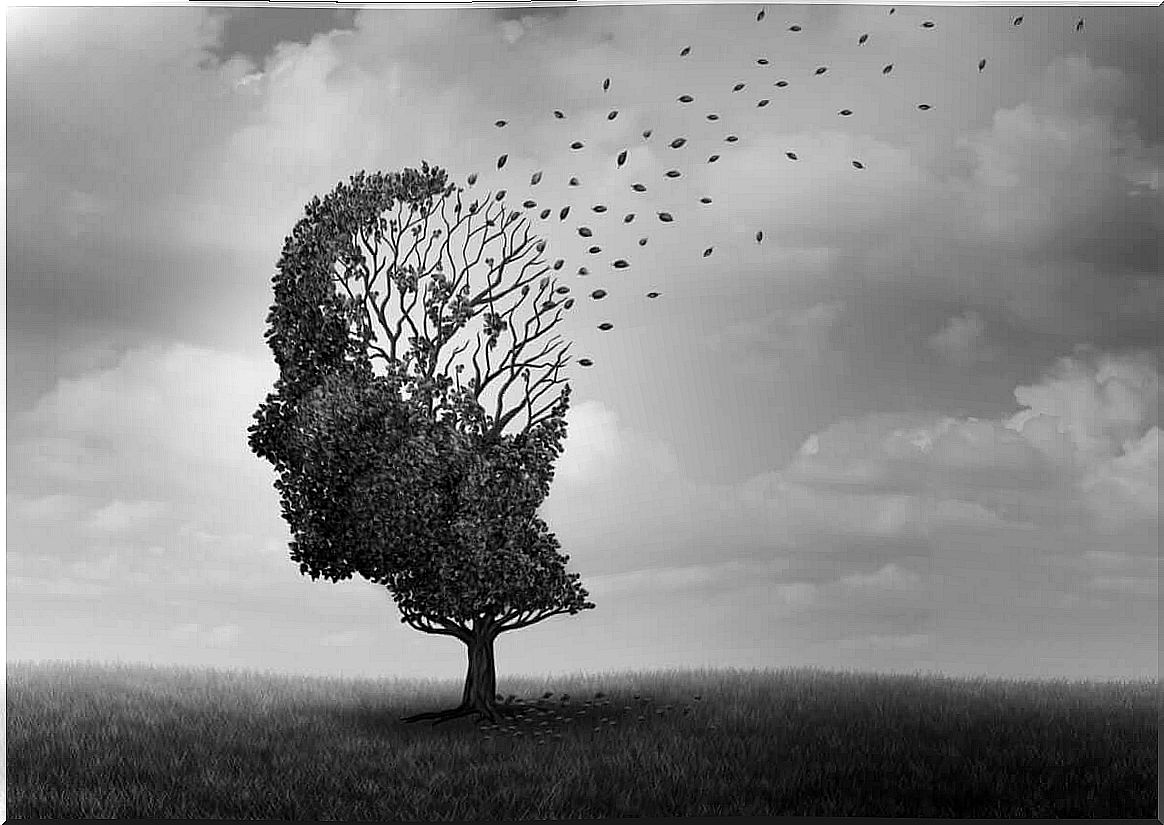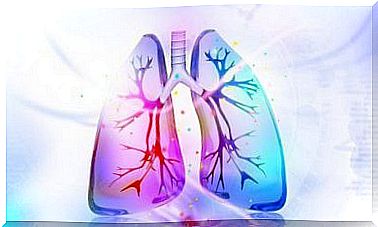An Overview Of The Different Types Of Amnesia

There are different types of amnesia or amnesia syndromes, as well as classifications. It is a condition characterized by a partial or complete loss of memory of a person.
According to diagnostic books, dissociative amnesia, a specific form, is estimated to be present in up to 2.6% of some populations. There are two ways to categorize the different types of amnesia.
- The first refers to the chronology of amnesia, that is, what kind of information the patient is unable to remember.
- The second groups them together according to their etiology or, in other words, the underlying cause of the disease.
In general , amnesia can be organic or functional. For example, some of the most common triggers include brain trauma and the use of certain medications.
Types of Memory Loss According to Their Chronology
In general, we can distinguish between two types of amnesia: retrograde and anterograde amnesia. It is important to note that a patient can present both at the same time, meaning that these are two complementary conditions.
This categorization does not refer to the causes, but rather to the symptoms. The Memory Health Check website gives us the definitions of these terms.
Anterograde amnesia
In this case, the brain does not transfer new events to the patient’s long-term memory. This means that it only remembers what happened before the onset of amnesia.
This type of amnesia entails a serious loss of autonomy in daily life, as the inability to store new memories and experiences from an emotional point of view causes various disorders.
At the same time, it also entails health risks in the form of accidents (Spanish link). For example, you can forget that you have put a pan on the fire shortly before.
retrograde amnesia

Here we look at the other side of the coin of amnesia, because in retrograde amnesia , the patient does not remember anything that happened before the onset of the disease.
According to the International University of Valencia (Spanish link), it is possible to forget all the information you gathered throughout your life before the brain trauma or triggering event.
Types of amnesia according to their etiology
The Cleveland Clinic indicates that we can also categorize types of amnesia based on their etiology. That is, according to the trigger causing the problem. Let’s look at them in detail.
Post-traumatic amnesia
According to neurological studies, traumatic brain injury is one of the most common causes of disability and mortality in the world. Data shows that in the United States there are more than 2.5 million hospitalizations for this type of injury, which corresponds to 16% of hospitalizations due to a fall or blow.
Post-traumatic amnesia occurs due to injuries that cause brain damage but do not penetrate the skull. This type of condition is usually accompanied by loss of consciousness and sometimes even coma. Fortunately, in most cases, the amnesia is transient.
Transient Global Amnesia (TGA)
According to the Mayo Clinic (Spanish link), transient global amnesia is a temporary loss of memory that cannot be attributed to the most common neurological disorders, such as epilepsy or stroke.
The incidence of this disease, ie the number of new cases registered in a particular place, is between 3 and 10 cases per 100,000 people.
That is why experts consider it a very rare condition. Although scientists still do not know the cause of the pathology, they suspect a link with the presence of migraines or diseases of vascular origin (Spanish link).
Diencephaly amnesia
As the name suggests, lesions in the medial diencephalon are characteristic of this type of amnesia. The main functions of this structure are to connect the nervous and endocrine systems and to control the functioning of certain glands.
An example of this type of condition is Korsakoff’s syndrome. In this case, the loss of memory and faculties is caused by a deficiency of vitamin absorption (Spanish link), especially of vitamin B1. This is caused by stomach damage as a result of excessive alcohol consumption.
Memory loss in children
Amnesia in children is common all over the world as it refers to the inability of adults to remember the first 3 to 4 years of childhood. Research indicates that the limit of this amnesia is variable and influenced by both individual and cultural factors.
Memory loss from Alzheimer’s disease
Although we still don’t know about all the causes of Alzheimer’s disease, experts suspect that certain metabolic disorders are also among the possible causes.
Organizations such as Elalzheimer.com (Spanish link) point out that memory loss is one of the first symptoms of this disease. This condition causes the patient to lose both short-term memory and memory of immediate events.
Drug-induced memory loss
According to the San Diego Hospital (Spanish link), a number of drugs, such as flunitrazepam, cause anterograde amnesia. This, as we said before, makes it impossible for the patient to remember everything that happened while under the influence of the drug.
Flunitrazepam is also known as a rape drug. This is because it is usually the substance that attackers put in women’s drinks so they don’t remember what happened and don’t know how to identify the rapist’s face.
Dissociative amnesia
In this case, we are dealing with a type of amnesia that is an unconscious defense mechanism. Patients with dissociative amnesia block personal information from a traumatic event.
According to the MSD manuals website (Spanish link), these memory gaps can range from a few minutes to decades of life. Hypnosis conversations and therapy with certain drugs can help patients remember the characteristics of the traumatic event.
Qualitative amnesias or paramnesias
According to the Medical Dictionary website (Spanish link), paramnesia is an alteration of memory in which memories are distorted. These fictional facts replace real situations, which one cannot remember. This type of memory loss is common in chronic alcoholism and organic brain syndromes.
We also know them as deja vú and jamais vú. The first expression refers to a situation where a new experience feels like you’ve experienced it before. On the other hand, the second describes when someone does not explicitly remember seeing something before.
When should you see a doctor?

After a severe concussion that causes unconsciousness, even if it lasts only a few seconds, an emergency doctor visit is mandatory. Some brain injuries do not manifest immediately, so you should see a doctor as soon as possible.
At the same time, it is necessary to emphasize that short-term memory loss in the general population is normal. We live at a very fast pace and sometimes anxiety disorders make us feel dissociated and confused. There is therefore no need to panic if you do not remember something perfectly.
The types of amnesia are many and varied
As you have read, there are many different types of amnesia. Although it is a condition with a simple definition, everything depends on the chronology and the causative trigger. In general, amnesia develops after a head injury and the amnesia is transient.
Being forgetful is normal in a society full of stimuli. However, when a person forgets the integral details of their daily life, feels confused in their own home or cannot identify their surroundings, it is essential to consult a doctor.









